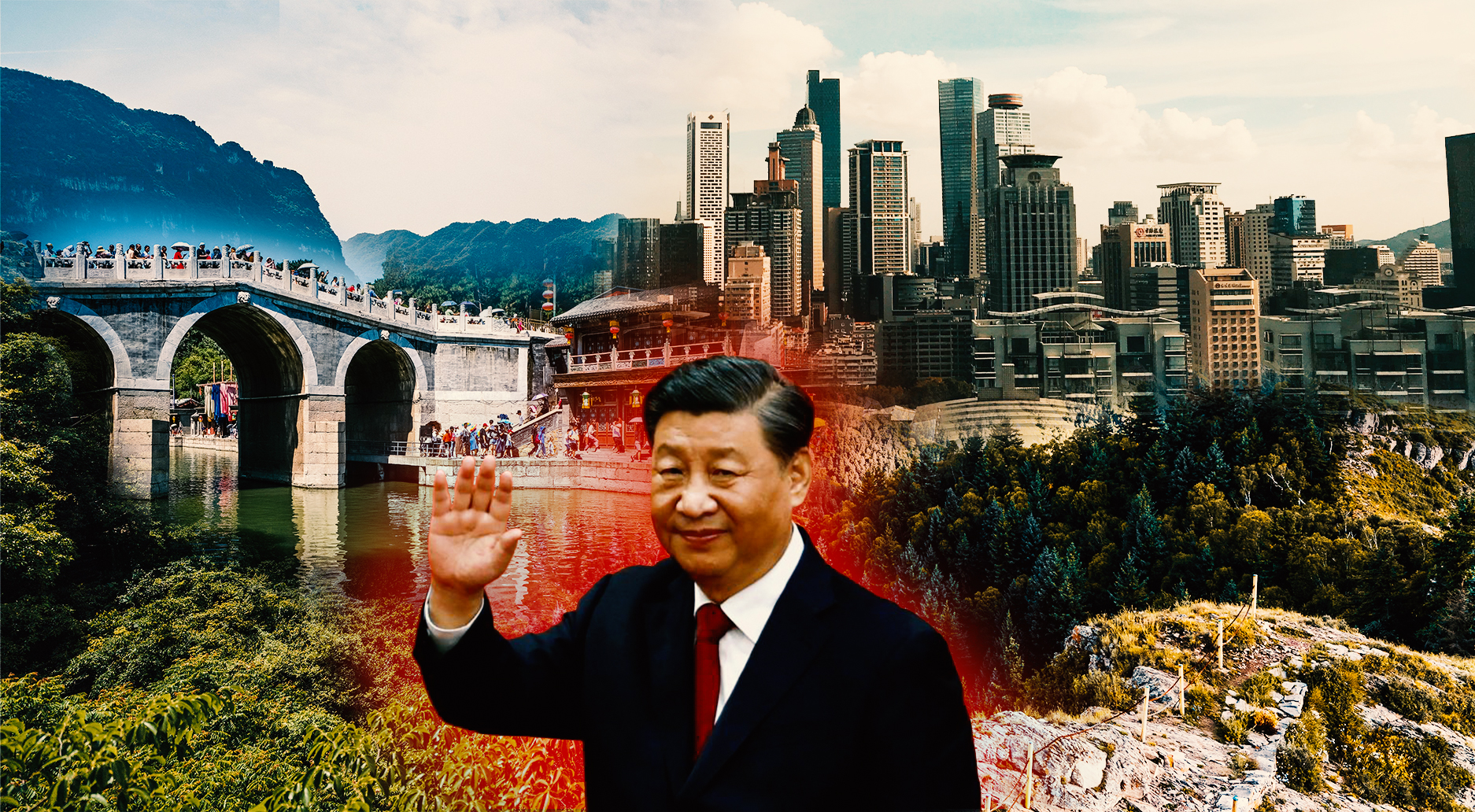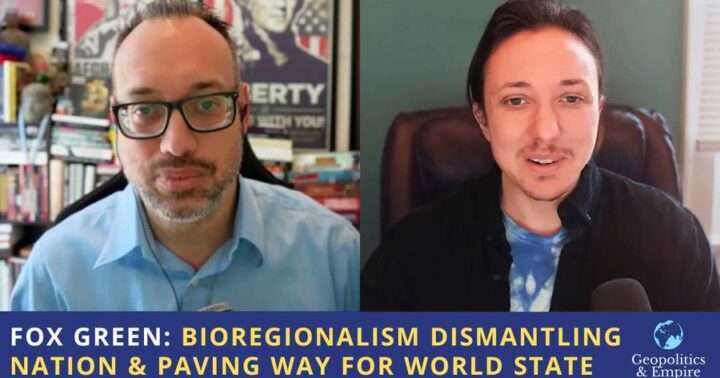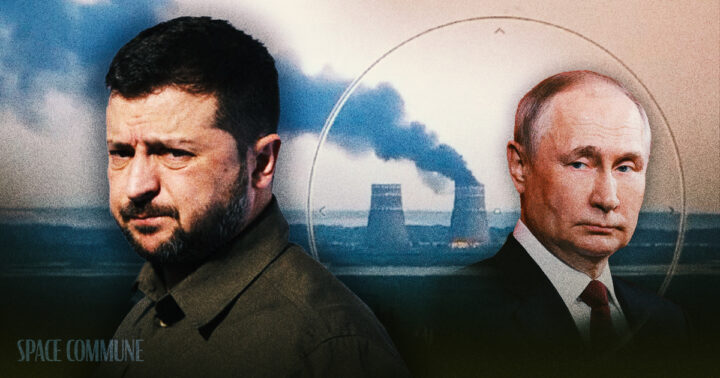No investigation, no right to speak.
Unless you have investigated a problem, you will be deprived of the right to speak on it. Isn’t that too harsh? Not in the least. When you have not probed into a problem, into the present facts and its past history, and know nothing of its essentials, whatever you say about it will undoubtedly be nonsense. Talking nonsense solves no problems, as everyone knows, so why is it unjust to deprive you of the right to speak? Quite a few comrades always keep their eyes shut and talk nonsense, and for a Communist that is disgraceful. How can a Communist keep his eyes shut and talk nonsense?
Mao Tse-tung, 1930
In the early evening of December 20, 2022, Noah Khrachvik made a tweet quoting President of the People’s Republic of China Xi Jinping:
“We will never again seek economic growth at the expense of the environment.”
Less than 24 hours later the tweet has racked up 1500 likes and more than 130 retweets. This popular tweet set off my alarm bells the minute I saw it. The quote sounded, to me—a person who has studied the degrowth movement for several years, put out multiple documentaries, and think pieces on the topic—closer to something that Greta Thunberg or Klaus Schwab would say, rather than Xi Jinping. I was delighted to see that someone had already asked for a source to this quote, which I absolutely had to investigate for myself.
Khrachvik replied, “His address to the 20th party Congress.” I quickly Googled the address to search for the much-needed context for this quote only to find that no such quote existed in the address at all. Nothing even close to what was represented in the tweet was stated in the 54 page speech. Khrachvik was caught in a lie. But instead of correcting the error and supplying a source for the quote, he took the opportunity to tone police.
“This tone doesn’t get answers. All it does is needlessly anger people”
“I don’t provide a damn thing to people who accuse me of lying, don’t bother to try to understand what I’m saying, and when I politely tell them that is an issue, continue going.
If you want to apologize, maybe.”
Ok, so I caught Khrachvik in a lie and he got defensive. This is to be expected. But was this just a harmless lie? No. This tweet is representative of a larger trend, directly connected to the information war, at a time when the imperialist Western ruling class is ramping up tensions with China at the expense of hardworking Americans and the international community alike by leveraging the existential threat of ‘climate change’.
“I work for one of the leading institutes for Marxist theory in the USA.”
Noah Khrachvik works on the editorial board for Midwestern Marx, “a journal which presents an alternative socialist analysis to the dominant left in the US today.” According to Khrachvik, Midwestern Marx is one of the leading institutes for Marxist theory in the USA.
Midwestern Marx does not have an about page, but it seems apparent that the journal was started by and/or is run by a retired teacher and Marxist journalist veteran named Thomas Riggins who formerly served on the board of the Bertrand Russell Society. A bulk of content on Midwestern Marx comes from a syndication propagated by the Independent Media Institute via Vijay Prashad’s Globetrotter.
Prashad, a regular star guest on Midwestern’s Marx’s YouTube Channel, is director of Marxist think tank, Tricontinental: Institute for Social Research. In October of 2022 Globetrotter ran an article which was syndicated in many journals including Midwestern Marx called The Electricity Crisis in South Africa Continues to Brew. The article summarizes the energy crisis facing Africa, specifically around “load shedding.” It concludes with:
“South Africa will not move into the light until the social value of access to electricity is affirmed. The proposal by the trade unions for a shift to socially owned and managed renewable energy is the best option on the table. We need a solution that is for the majority and not the few.”
“Best option” links to a policy document published by Tricontinental titled The Crisis in South Africa’s Energy Sector: Towards a just transition centring job creation and social ownership. The document condemns Chinese coal and Russian nuclear energy development in Africa in favor of “just transition” renewables, which is right in line with the World Economic Forum degrowth agenda.
Meanwhile, political leaders in South Africa, like Themba Godi of the African People’s Convention, are advocating for nuclear power as “the cheapest and reliable source of electricity. Eskom and govt are on a fool’s errand about solar & wind.”
Prashad has been challenged for putting forth a renewable-only energy agenda for Africa. And notably, though he earned press for slamming an anti-growth message pushed on the developing world at COP26, he is a close fellow traveler with Marxist author John Bellamy Foster. Foster and Prashad co-authored Washington’s New Cold War: A Socialist Perspective; Foster is also an influential and respected figure in the Midwestern Marx media ecosystem.
John Bellamy Foster’s protege, Japanese academic Marxist Kohei Saito has recently burst onto the scene with provocative book titles like Marx in the Anthropocene: Towards the Idea of Degrowth Communism and Karl Marx’s Ecosocialism: Capital, Nature, and the Unfinished Critique of Political Economy.
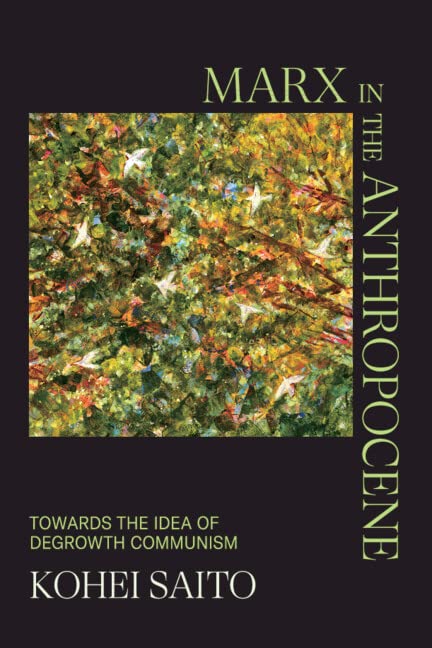
In his academic work, Saito has followed John Bellamy Foster and Paul Burkett, in showing that it is wrong to claim, as some Greens do, that Marx and Engels ignored the impact of capitalism on the planet and the environment. In particular, Saito won the Isaac Deutscher prize in 2018 for his learned analysis of Marx’s notebooks on agriculture and the exhaustion of the soil revealing Marx’s deep interest in ecology.
In this earlier work, Saito points out that his approach “is a clear continuation of the “metabolic rift” theory advocated by Foster and Burkett.” Saito argues that it is quite apparent today that mass production and consumption under capitalism has tremendous influence upon the global landscape and causes ecological crises. So Marxist theory needs to respond to the situation with a clear practical demand that envisages a sustainable society beyond capitalism. Capitalism and material conditions for sustainable production are incompatible. This is the basic insight of ‘eco-socialism’. The antagonism between red and green needs to be dissolved.
Saito: the metabolic rift and de-growth communism
‘Metabolic rift’ theory is the brain baby of John Bellamy Foster and an often-cited and written about topic by Midwestern Marx editors and self-proclaimed “Marxist experts” who insist that the theory is first mentioned in Marx’s Capital. It’s not. Marx did not write about “nature’s metabolism” in Capital: A Critique of Political Economy. The only time the word is used is in reference to “social metabolism” which is about economic trade, and nothing to do with nature. As with the false and out-of-context Xi Jinping quote, they are relying on their readers not checking for sources.
So now that we’ve established the connection between Midwestern Marx, Vijay Prashad, John Bellamy Foster, Kohei Saito, the renewable agenda, “degrowth communism” and the bogus “metabolic rift” theory, it may not come as a surprise that Prashad’s Globetrotter, a project of the Independent Media Institute, since as early as 2004, has been funded by left wing philanthropies such as Open Society Institute, Ford and Tides Foundations, just to name a few. Some might recall the Congress for Culture Freedom, a covert project by the CIA to uplift specific anti-communist Marxist voices and create a ‘compatible left’ in the Western sphere, influencing young socialists to disavow actually-existing socialism around the world. This program was initially funded by the Ford Foundation and later absorbed as a project of the Open Society Foundation.
Are we seeing what could be called a ‘compatible Marxist-Leninist left’ or ‘compatible tankie left’? Is it possible that the job of this New Tankie Left is to appear friendly towards Russia and China while pushing the degrowth, ‘climate change’ imperialist agenda?
Economically Decoupling from China Would be a Huge Mistake
“I believe none of us wants to see global warming, but all of us want to see a ‘warming’ of China-US cooperation,” Qin Gang, Chinese Ambassador to the U.S. stated in his Keynote speech at the USCBC Gala December 6, 2022 in Washington D.C.
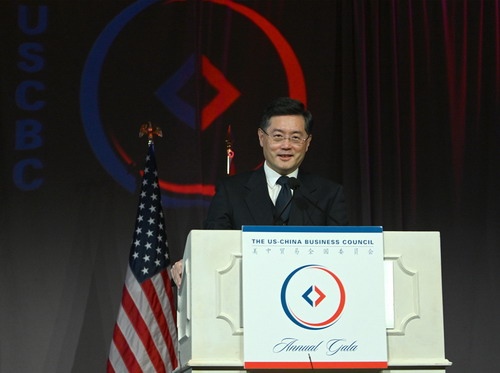
The theme of the Gala was “climate change” and Qin Gang echoed the people-centered environmental sentiment of Xi Jinping in his statements:
The Party Congress has set out the central task of the Party for the new era, which is, we will advance the rejuvenation of the Chinese nation on all fronts through a Chinese path to modernization. Chinese modernization, as a keyword of the report, has Chinese characteristics, such as a huge population, pursuit of common prosperity, coordinated material and cultural-ethical advancement. And it also reflects the aspirations of the entire humanity, such as peaceful development,and harmony between man and nature, which will benefit both China and the whole world. China follows a people-centered development philosophy, and takes the people’s aspiration for a better life as the starting point and final goal of its development. The 1.4 billion Chinese people are pursuing common prosperity through high-quality development. This means the Chinese people’s purchasing power will continue to grow, and their consumption will expand. It will create more market and development opportunities for the US and other countries.
Qin followed by saying something similar to Khrachvik’s original tweet, but with much more context added:
Harmony between man and nature is a main feature of Chinese modernization, and a pledge made by China to the world. Lucid waters and lush mountains are invaluable assets — this is an essential requirement of high-quality development. China will not develop at the expense of the environment. Instead, we have announced the goal of achieving carbon peaking before 2030 and carbon neutrality before 2060, and we have introduced a roadmap, an action plan and specific measures to reach the goal.
Qin also spoke critically about the latest efforts by the U.S. and European Union to ‘economically decouple’ from China:
Some people worry that a tense China-US relationship will hamper our economic and trade cooperation. I share this worry. China and the US are major trading and investment partners. Our industries are deeply integrated and complementary. Our cooperation has huge potential to tap. Having said all this, the US defines China as “the most serious competitor” and “the most serious long-term geopolitical challenge”, out of grave strategic misperception and misjudgment. Because of this, it has imposed export controls, import restrictions, investment reviews, as well as measures in tech cooperation, industry supervision and industrial subsidies. These measures have reduced semiconductors, new energy, and other areas that should have provided business opportunities to some “no-go areas”. They run counter to the principles of market economy and rules of international trade, and are disruptive to global industrial and supply chains. Let me give you an example. The US has recently introduced several restrictions on semiconductor export to China. These restrictions will cost the global semiconductor industry almost 10 billion dollars in the next three years, and bring considerable negative impact in the mid-to-long term. What the US needs is growing its economy, adding jobs, cutting inflation and reducing budget deficits. Healthy, stable and cooperative trade relations with China will serve America’s own interests. Stretching the concept of national security and politicizing and weaponizing economic and trade ties should not be the real purpose or normal state of such ties. Building a small yard with high fences, cutting off supplies, and seeking decoupling are detrimental to both oneself and others. We should not let national security stand in the way of economic development and improvement of people’s lives in both countries. On issues concerning the economy and trade, people need to face the reality that China and US are deeply integrated, people should take the interests and voice of the business community seriously, follow business rules, and conduct professional discussions. To decouple from China is to decouple from potentially the biggest market in the world; to cut off supplies for China is to cut itself off from opportunities.
It is clear from these statements that China desperately wants cooperation with the United States, despite the fact that our ruling class is trying to start a war with them. If we compare this to the statements of United States politicians we are painted a very different picture. In an extravagant display of projection, in a New York Times op-ed by Robert Lighthizer, a former trade representative in the Trump administration writes:
There are two fronts in any contest with China: the economic front and the national security front. They are not entirely separate. One affects the other. And for policymakers, that is the point.
We must prepare in both spheres — economic and military — because the best way to avoid a military crisis is to maintain our economic superiority.
The purpose of strategic decoupling would be to benefit America, not to punish China or to hold it back. It has become clear that China is not a friend or a partner in development, but rather an adversary bent on world dominance.
Compete vs cooperate ideologies lie at the heart of geopolitical tensions. Business and political leaders from both countries know how co-dependent the American and Chinese economies are, but the Anglo-American imperialist core is based on an ideology of scarcity and competition, whereas the Chinese side is led by an ideology of forward motion, dialectic, abundance, prosperity and cooperation.
How Environmental Rhetoric Differs in China vs the Western Sphere and Why it’s Important
People in the West are conditioned to take opposing sides in a debate of ideas. You are either all wrong or all right; You are either for it or against it. The Chinese approach to environmentalism is not the Western approach to thinking about things, of left vs right. It’s about understanding the whole picture and navigating the differences to pursue a higher truth.
It is our job to reveal to the public the reality about the US-China relationship, not to play into mainstream rhetoric about environment vs humanity by tweeting ‘we will never again seek economic growth at the expense of the environment.’ Here is what Xi Jinping actually said in his speech at the World Economic Forum in January 2022:
As I have said many times, we should never grow the economy at the cost of resource depletion and environmental degradation, which is like draining a pond to get fish; nor should we sacrifice growth to protect the environment, which is like climbing a tree to catch fish.
It must be both. Just as it must be both the US and China leading the global economy together, it must be both humanity and the environment, not humanity OR the environment. This is what Win-Win Cooperation and world peace through development look like. United we stand, divided we fall: divided we will fall and be subdued by the ruling class, to George Soros, who calls Xi Jinping “the greatest threat that Open Societies face; and divided we will fall to ‘Mother Gaia,’ natural disasters and famine. Decoupling from China would be a disaster for our economy.
Xi Jinping’s Thought on Ecological Civilization is about harmony between mankind and nature — in the West we are taught that these are opposing forces — that humanity is a virus on the planet, which precludes us from considering an anti-Malthusian, pro-humanity position such as the one guiding China.
Not only must we investigate the present facts and its past history, but we must also investigate the rhetoric that surrounds it. We must understand how ‘fighting climate change’ is used as a rhetorical cudgel to punish enemies of the imperialist West, as well as its own citizens via economic austerity and war. We must resist the urge to repeat anti-human, degrowth narratives of the ruling class Malthusians. Otherwise we have no right to speak.
